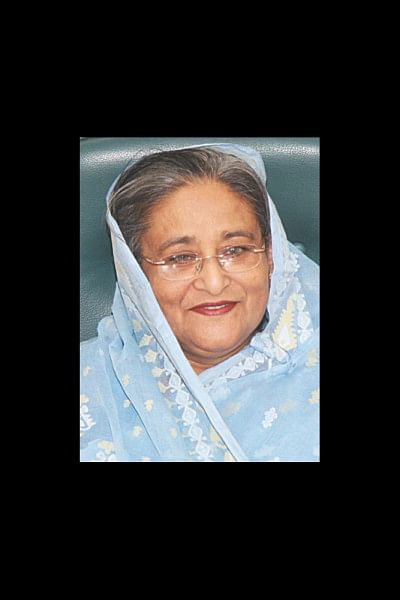Teesta Water-sharing: Deal unlikely during PM's India visit

The much-awaited Teesta water sharing treaty might not be inked during Prime Minister Sheikh Hasina's visit to India next month, said Water Resources Minister Anisul Islam Mahmud yesterday.
“I am not telling you [journalists] that the Teesta deal will be signed during this visit as they [India] have some internal problems. We expect the deal to be signed after their problems are resolved,” he told reporters at a roundtable held at The Daily Bhorer Kagoj office in the capital.
Both former Indian prime minister Manmohan Singh and incumbent Prime Minister Narendra Modi made their commitment to signing the deal during their respective visits to Bangladesh, he added.
Manmohan could not make it happen, but Modi was expected to do it, the minister told the roundtable on “Turning Wastewater into Wealth.” He attended the programme as the chief guest to celebrate the World Water Day to be observed across the globe today.
Asked about any possible diplomatic failure, the minister trashed the idea at the roundtable jointly organised by Bhorer Kagoj, End Water Poverty, Fresh Water Action Network, South Asia Bangladesh, NGO Forum for Public Health and Water Supply and Sanitation Collaboration Council.
“All of you know that they [India] have some problems in signing this deal. But their prime minister and their people are very cordial about it. So, we hope this will be resolved soon and the deal will be signed,” he reiterated.
The Teesta treaty was drafted in 2010 and was supposed to be inked during Manmohan's visit to Bangladesh in 2011. But it did not happen as Chief Minister of Bengal Mamata Banerjee refused to come to Dhaka with Manmohan, raising her objection to the treaty at the last leg of the visit.
Modi came to Dhaka on a 34-hour trip to take bilateral relations to a new level on June 6, 2015.
Bangladesh expected that Modi would bring Mamata on board by offering her a fiscal package to revive cash-strapped Bengal and the Teesta deal would be signed. But that also did not happen.
Prime Minister Sheikh Hasina is going to visit India on April 7-10 at the invitation of Modi, but the fate of signing of the deal remains uncertain.
The water resources minister informed the reporters that Dhaka and Delhi were in discussion over the Ganga barrage and Bangladesh wanted to build it at Pangsha in Rajbari.
The minister acknowledged that Bangladesh was also deprived of a fair share of water because of the Farakka dam. He also pointed out that the rivers are unable to store water due to poor maintenance and deposit of silt.
“The government has prioritised dredging work on the rivers to reserve the flow of water,” he said.
Prof Mujibur Rahman of Bangladesh University of Engineering and Technology (Buet) gave the keynote presentation on “Wastewater Management: From Disposal to Resource Recovery.”
More than 80 percent wastewater generated globally flows back into the ecosystem without being treated or reused, he said, adding that 8.42 lakh deaths were caused for unsafe water, poor sanitation and unhygienic atmosphere.
In Bangladesh, around 92 percent wastewater is being seriously neglected, he noted.
Around 2.1 crore people in Bangladesh are still drinking unsafe water, said Alok Majumder, country coordinator of Wash Alliance.
Bhorer Kagoj editor Shamol Dutta moderated the programme addressed by Water Resources Senior Secretary Jafar Ahmed Khan, among others.

 For all latest news, follow The Daily Star's Google News channel.
For all latest news, follow The Daily Star's Google News channel. 



Comments